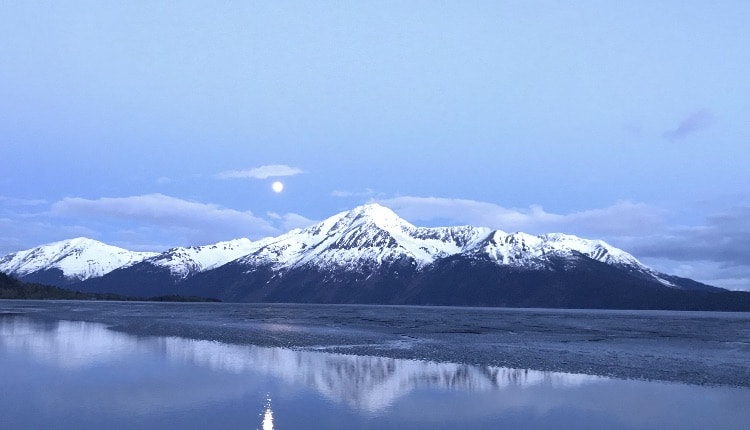 prospective56 / iStock / Getty Images Plus
prospective56 / iStock / Getty Images Plus
Practicing in the Land of the Midnight Sun
Katrina Virgin, RDH, MS, shares her insights on providing oral health care in the remote regions of Alaska during a global pandemic.

Even as a child , was intrigued by dentistry. “I was the kid in the neighborhood who enjoyed helping other kids pull out their baby teeth,” recalls Virgin. But once she became a dental hygienist, Virgin’s primary goal shifted to saving teeth. She worked in a private periodontal practice in Southern California for several years. But her true passion lay in public health and volunteering for entities such as the Special Olympics.
Virgin carried that passion with her when she and her husband relocated to the remote reaches of Alaska, volunteering while working on her master’s degree. Now, in addition to practicing, she serves as president of the Alaska Dental Hygienists’ Association. She recently shared her thoughts on practicing during the COVID-19 pandemic in the Land of the Midnight Sun.
Q: You have been instrumental in helping to formulate strategies for dental offices to reopen during the pandemic. What are some of your recommendations?
A: Dental offices already have strict infection control procedures. However, additional steps should be taken, which include using high-volume evacuation (HVE) with procedures that create aerosols or spatter, avoiding the use of ultrasonic instrumentation, and utilizing selective polishing procedures. Other safeguards include screening patients, staggering appointments, and having patients perform a preprocedural mouthrinse. It’s also recommended that patients provide a negative COVID-19 test result within 48 hours prior to treatment.
Q: How is your work being impacted by the coronavirus pandemic?
A: Due to the pandemic, travel to rural areas has been curtailed. And while many dental providers would agree that preventive dental procedures are essential in order for patients to maintain optimal overall health, these types of procedures have been deemed nonessential in Alaska. This has caused a major delay in treatment. I’m currently practicing at a dental clinic on Kodiak Island, but I’m hoping to start traveling out to the villages again soon.
Q: What are your visits to the villages like?
A: The most enjoyable part of my job is learning about different cultures, sharing food, and listening to stories. The difficult aspects of village travel are being away from your family for short periods of time, and ensuring you pack enough food and water, as many villages don’t have grocery stores. The weather can also be tough on travel.
Q: Do you work in conjunction with a dentist or dental health aide therapists?
A: Because clinic space is very limited in rural clinics, dentists, dental health aide therapists, and dental hygienists travel separately with a dental assistant. Trips are usually 2 days to 3 days, and the separate travel allows room for sleeping and eating quarters at the clinic, while maximizing patient care.
Q: As president of the Alaska Dental Hygienists’ Association, what do you see as the most urgent oral health issues in Alaska?
A: Some areas of Alaska are hard to access, and there are not enough providers to serve locally let alone within rural areas. To address these disparities, my colleagues and I at the Alaska Dental Hygienists’ Association (AK DHA) initiated Senate Bill 68 and House Bill 127, which create an advanced practice permit for dental hygienists to be able to travel to underserved areas and provide the dental hygiene scope of practice without needing to be overseen by dentist, or have a collaborative agreement.
The bills were on the verge of passing before the pandemic, but will have to be re-introduced next year, when they will likely pass. We are hopeful year 2021 will be a better year for our world, for the advancement of the dental hygiene profession, and for the oral health of Alaska.

